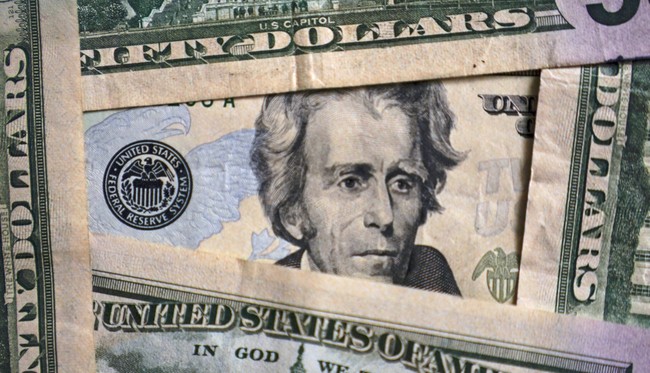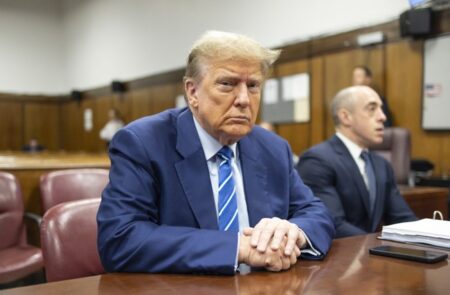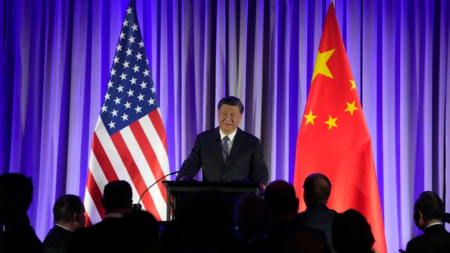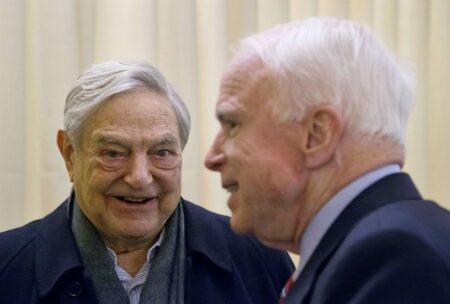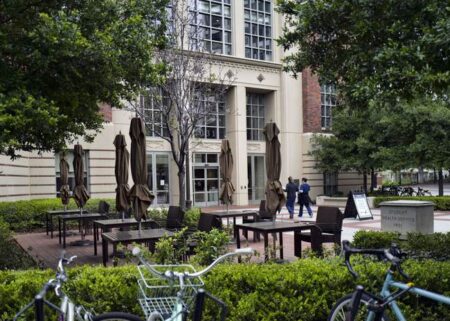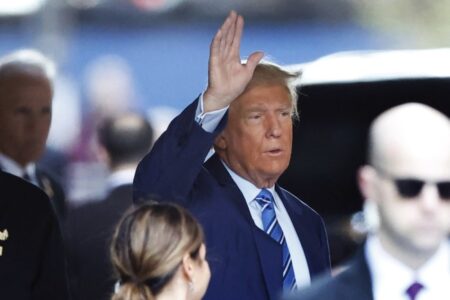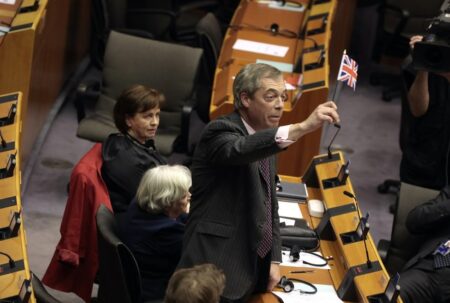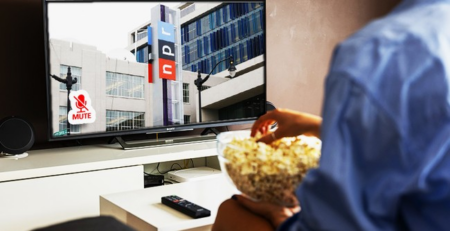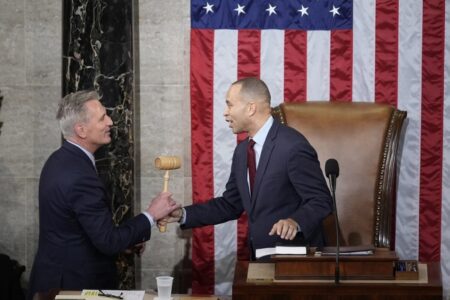Inflation refuses to go away quietly. The CPI numbers out today are raising concerns that we may not see the soft landing we were hoping for.
Surging gas prices and sky-high mortgages and rent sent inflation rising more than expected in March, adding to Americans’ prolonged and painful battle with high costs. That could force the Federal Reserve to keep its punishing rates higher for longer.
US consumer prices picked up again last month, vaulting to a 3.5% increase for the 12 months ended in March, according to the latest Consumer Price Index data released Wednesday by the Bureau of Labor Statistics.
That’s up considerably from February’s 3.2% rate and marks the highest annual gain in the past six months…
“You can kiss a June interest rate cut goodbye,” Greg McBride, chief financial analyst for Bankrate, wrote in commentary issued Wednesday.
The DOW is down more than 500 points today in response to the news.
US stocks fell sharply Wednesday morning after inflation data for March came in higher than expected.
Markets recovered slightly in mid-morning trading. The blue-chip Dow was lower by 503 points, or 1.3%. The S&P 500 lost 1.1% and the Nasdaq Composite fell by 1.1%.
Because it’s an election year, the status of the economy is more of a political football than usual. On Monday, economist Paul Krugman wrote a column saying Bidenomics was great and the only reason some people disagree is because of partisanship.
Job creation under Biden has been truly amazing, especially when you recall all those confident but wrong predictions of recession…
Inflation did surge in 2021-22, although this surge has mostly subsided…
Why, then, are so many Americans still telling pollsters that the economy is in bad shape?…
The elephant in the room — and it is mainly an elephant, although there’s a bit of donkey too — is partisanship. These days, Americans’ views of the economy tend to be determined by political affiliation rather than the other way around.
This is just the same vibecession discussion we’ve been having for a while. It suggests the economy is actually great but people don’t feel good about it for reasons usually ascribed to conservative media. But there are signs that businesses and individuals are responding to more than just vibes and partisanship.
An index produced by the National Federation of Independent Business gauging how small-business owners expect to fare in the future dropped to its lowest level since 2012 last month…
“The small business sector is showing signs of a potential slowdown,” NFIB head Holly Wade and the trade organization’s chief economist Bill Dunkelberg said in a report published Tuesday. “Continued stress in navigating inflation pressures leads as the top business problem,” they added…
And the highest share of consumers since the onset of the pandemic said they’re unsure if they’ll make a minimum debt payment on time, according to the New York Fed’s monthly Survey of Consumer Expectations that was released on Monday.
The FED seemed ready to ignore inflation drifting higher at the start of this year but this new report may change the mood a bit. It may even dampen the talk about a vibecession. Higher gas prices and mortgage rates seem like real reasons for people to be unhappy with the economy.
Update: The NY Times says this report is a blow to President Biden.
The unexpected re-acceleration in price growth across the economy is at least a temporary setback for President Biden, who has been banking on cooling inflation to lift his re-election prospects…
Wall Street analysts saw Wednesday’s surprise pickup in the inflation rate as a sign that the Fed could leave rates on hold for months longer than expected. That could mean no cuts before the November election, a campaign where Mr. Biden’s Republican opponent, former President Donald J. Trump, has slammed Mr. Biden for both rapid price increases and high borrowing costs.
In a separate article they point out that if the FED does not cut rates in June because of today’s numbers, that will place them in a political spotlight if they try to cut rates just prior to the election.
If the Fed does not cut rates soon, the election could make the start of reductions more politically fraught. Central bankers are independent of the White House and typically insist that they do not make policy with an eye on the political calendar.
Still, cutting in the months just before the election could put policymakers under a partisan spotlight: former President Donald J. Trump, the presumptive Republican nominee, has already painted possible rate cuts as a political ploy to help Democrats.
But given inflation’s unexpected staying power, the Fed is likely to want to take its time in adjusting policy. Kathy Bostjancic, Nationwide’s chief economist, said that rate cuts could now be delayed to this autumn — if they happen in 2024 at all.
We’ll have to wait and see but rate cuts in September will get some extra scrutiny.
Read the full article here





